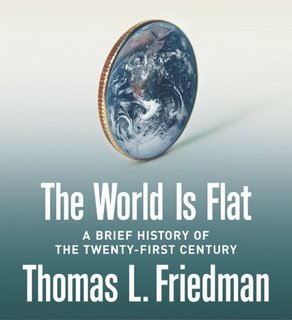
...as Apple release the new 13-inch MacBook featuring the Intel Core Duo processors.

...As the world gets interconnected being able to find what we are looking for becomes vital in a world where there is so much information. Google, blogging, the Wikipedia and Craigslist are changing the wat we find things. As computers get ever smaller and mobile technology means we are always reachable, business models will have to take account of search.
Business Week Peter Morville has written a book that should be required reading for anyone involved in the net and website design. Morville hopes that " as ambient findability becomes reality, we are able to offset the inherent dangers of group think and mob justice by empowering literate individuals with the ability to find and recognize the truth, make informed decisions, and when necessary act independently. I believe librarians have an important role to play in leading us towards this more desirable future." Digital Web
This is one of those books that I feel I need to read two or three times. The book is published by O'Reilly


...Dr. Michio Kaku is a Japanese American theoretical physicist who is a co-creator of string field theory. The Harvard graduate and professor at City College of New York is a well known author of popular science books and also has his own radio show. His many activities can be kept up with on his website.

Is the book "Parallel Worlds" science or science fiction? While reading it I had the uneasy feeling of being out of my depth. It seemed as if all the "Star Trek" episodes I had watched were about to become true. Now quantum mechanics is weird but it does make my PC and mobile phone work. Do I have to accept the scientific speculation behind it? Up to a point, yes. After all I can't do the theoretical work behind books like this. Biology I can do. Particle physics is a tad expensive.
I found this blog by Plato the proof that I was out of my depth. So what shall I say of my impression of the book? The multiverse seems a possibilty to me. The contradiction that the unity is more than one. Language does not seem to help much before the big bang (or after the big crunch for that matter.) So creation and nirvana are both possible. Yet we have to plan our way out of this doomed universe, that will no longer be there billions of years in the future. Ecology tries to teach us to value what we have here. Kaku's science seems to be ultimately pessimistic. Maybe at root it is based on some fallacy. Are we missing something mind bogglingly obvious?
At times like this I always fall back on the veil of Isis. She let's us know what we need to know, in order to grow. Yet she still holds sway over the ultimate mystery. I know, that's mysticism. Guilty as charged. At least it helps me sleep at nights.
